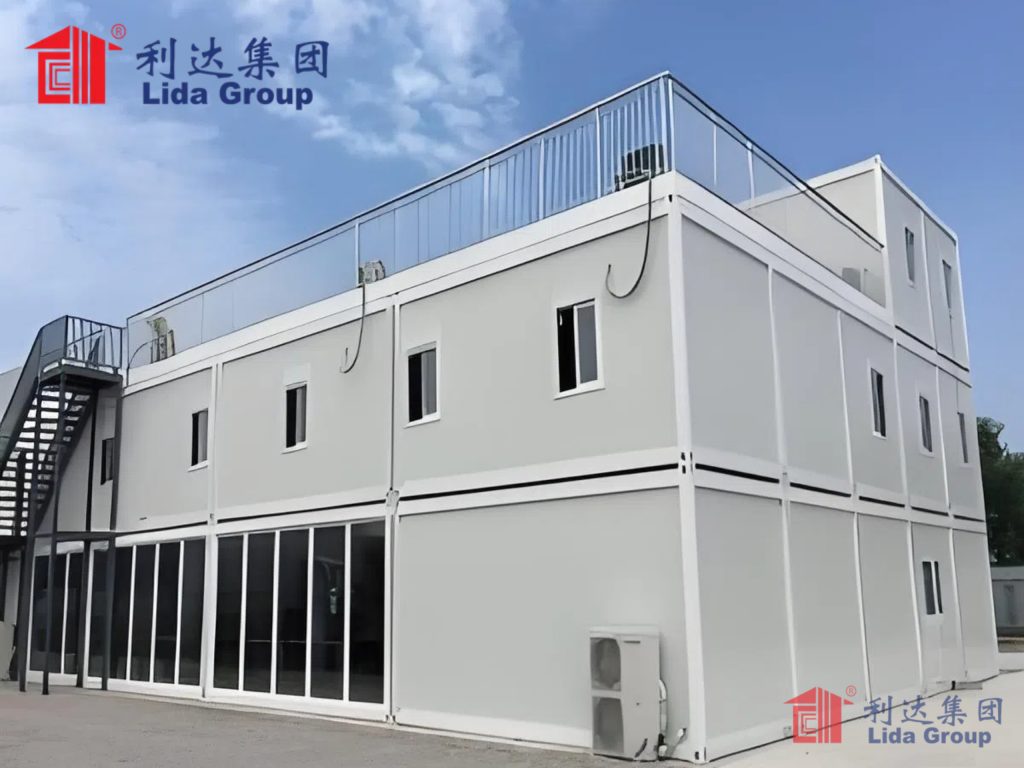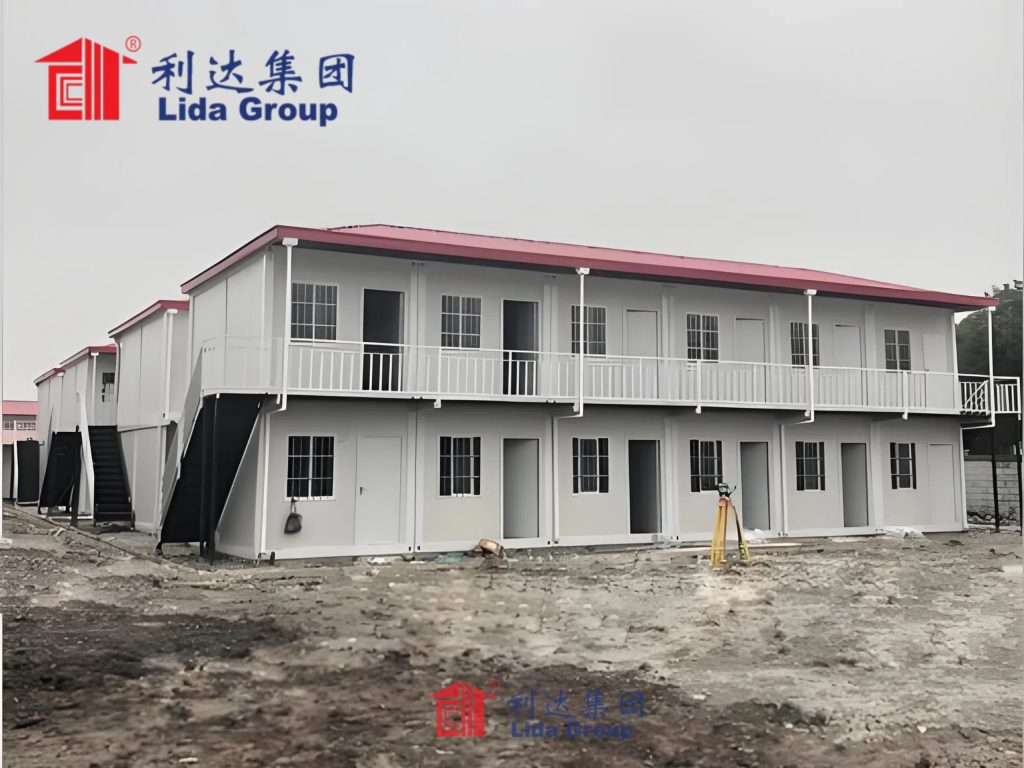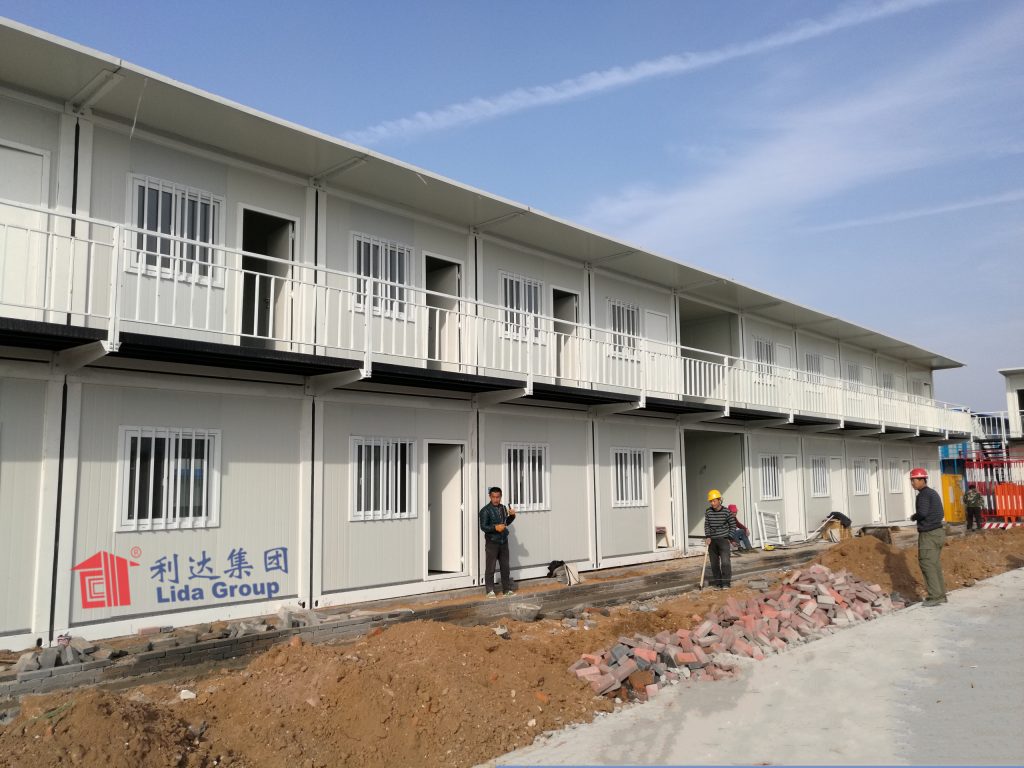As large-scale population displacements stretch into prolonged crises globally, humanitarian actors face growing challenges sheltering vulnerable groups through all transition phases until permanent resettlement or return. To improve living conditions for displaced communities transitioning beyond initial emergency response, international NGO ShelterBox has begun piloting more resilient semi-permanent camps utilizing Lida Group‘s integrated modular container complexes.
The standardized shelter designs aim supplying basic covered accommodation, water and sanitation for up to two years if required, with rapidly deployable modular construction enabling flexible expansion or contraction as circumstances evolve. While temporary tented camps fulfill short-term lifesaving needs, containerized multifamily housing complexes aim providing improved protection and dignity for displaced populations in limbo awaiting solutions.
The first deployment followed monsoon flooding displacing over 100,000 people across northern Bangladesh. Within days of mobilization requests, Lida arrived onsite with hundreds of prefabricated modules for a new inland settlement to decongest overwhelmed evacuation centers. Prefabricated flooring, wall panels, roofs and plumbing stacks assembled easily from containerized components into self-contained communities.

“These integrated designs address common critiques of camps as disconnected sprawls lacking necessary facilities,” notes Shelter Box Bangladesh Director Ali. “Within a week families had weatherproof housing, running water, latrines and communal cooking/bathing shelters – a major improvement over tents alone through the approaching cyclone season.”
Standardized floorplans allow phased expansions. Initial 500-person phases comprised 100 family units sharing kitchens/multi-function halls. With access roads, markets sprouted organically at camp peripheries. A healthcare centre, youth club and mosque were later installed via additional modular buildings transported ready-made.
Now hosting 1,500 people the settlement establishes a semi-permanent safe environment, though containers’ mobility enables eventual relocation. Quality shelters and services aim empowering families through vocational/language training towards graduation to other solutions wherever possible, rather than long-term institutionalization.

Monitoring so far lauds design features easing the prolonged transition out of emergency response. Communal facilities support psychosocial wellbeing, while dignified private family shelters restore normalcy. Prefabricated construction cuts typical camp delays, expediting safe evacuation and organization at the height of crises.
“These designs respond directly to displacement impacts like family separation, with space for multigenerational shared living while maintaining gender-separate facilities and privacy,” ShelterBox Policy Advisor Hasib explained during a coordination meeting evaluating the Bangladesh pilot’s protection outcomes.
Building on successes, similar semi-permanent settlements are now planned for displaced Venezuelans in Colombia and Rohingya refugees in Cox’s Bazar utilizing Lida Group’s modular systems. Consultation ensures cultural sensitivity, protection and gender-mainstreaming from the onset. Community feedback will guide continual improvements, with projects trialling renewable power integration next and exploring sanitation upgrades.

Overall outcomes aim demonstrating containerized prefab shelters streamlining the transitions between emergency, post-emergency and durable solutions according to changing operational contexts without relinquishing protection standards. If refugee hosting continues long-term, communities may eventually transition to more permanent housing or relocation to areas supporting self-reliance with ongoing remote technical support. ShelterBox aims proving the integrated modular camp model supports dignified stays until the achieving of solutions.
In summary, the humanitarian organization ShelterBox is piloting Lida Group’s standardized modular container complexes providing covered shelter, water and sanitation facilities to displaced populations transitioning beyond short-term emergency response phases. Rapidly installable yet reusable, the integrated semi-permanent camp designs aim maintaining protection and dignity for communities in prolonged limbo while supporting services and graduation towards durable solutions. Monitoring evaluates scalability and protection outcomes as displaced populations evolve contingently through extended assistance periods until achieving resettlement or return.

Related news
-
Engineers commend Lida Group's flat-packed modular container home and classroom designs incorporating universal connections for swift assembly and relocation using local labor as sustainable low-cost post-emergency reconstruction solution.
2024-06-21 10:27:16
-
Donors support scaling of Lida Group's portable panel building approaches delivering dignified low-cost emergency housing to crisis-affected populations lacking access to permanent shelter solutions.
2024-06-18 10:43:47
-
Farming innovation center collaborates with Lida Group developing customizable prefabricated components augmenting traditional housing with attached livestock housing, grain drying facilities and tool sheds under one durable steel structure.
2024-06-14 15:38:57
contact us
- Tel: +86-532-88966982
- Whatsapp: +86-13793209022
- E-mail: sales@lidajituan.com


